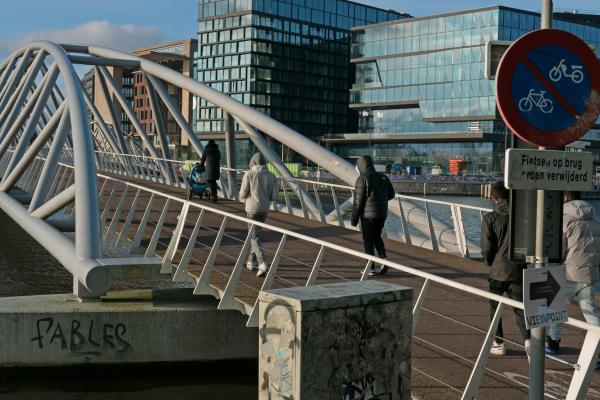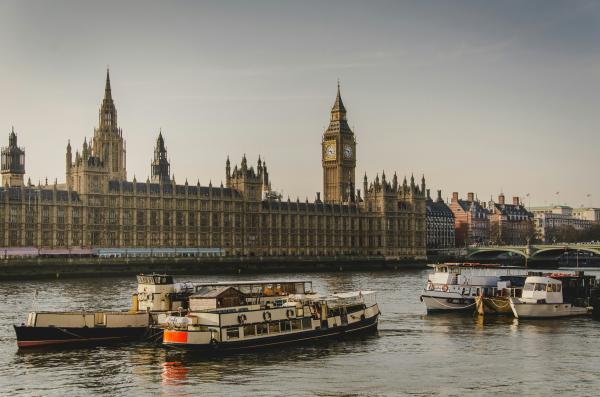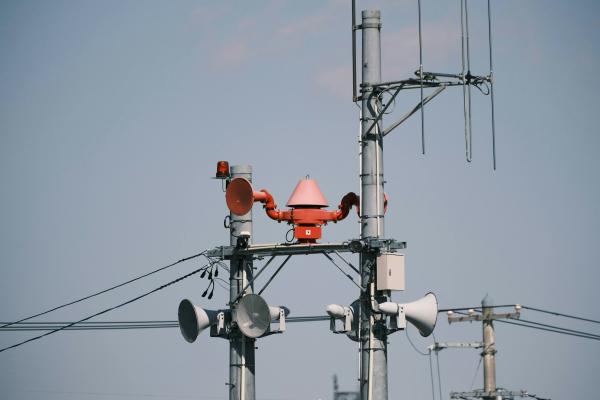Building Geopolitical Resilience: Thriving in a shifting world
In a volatile world where organisations have limited control over macro risks, how can they ensure survival and even thrive? This evolving outlook presents both challenges and opportunities.
Heathrow’s Power Failure: A Stark Wake-Up Call for Resilience in Critical National Infrastructure
In a volatile and complex world, the Heathrow fire offers more than just a case of disruption—it is a system-wide signal failure in resilience thinking.
Practical Steps for Building Resilience to Geopolitics – Event Summary
Last month Resilience First hosted a virtual panel discussion on building resilience in today’s evolving geopolitical environment. Read the event summary to explore key insights on how your organisation can identify opportunities and strengthen its resilience.
The Digital Ocean: Protecting Our Undersea Communications Infrastructure
Submarine cables form the backbone of global connectivity, handling nearly 95% of internet traffic and $10 trillion in daily financial transactions. As reliance on these cables increases, so does the risk. Between 100 and 200 cables are damaged every year due to accidents, natural disasters, or deliberate sabotage. Learn how these disruptions can affect businesses and how to make your communications infrastructure more resilient.
Warning Systems Save Lives
The recent wildfires in Los Angeles highlight the critical need for effective early warning systems to save lives.
As wildfires become more frequent and intense due to climate change, how can businesses and communities strengthen evacuation plans and improve communication channels to ensure timely alerts?
The Current State of Extreme Right-Wing Terrorism and what it means for UK Business
With rising attacks targeting minority groups and government-related sites, businesses face risks ranging from staff safety to financial disruption. Explore how the evolving threat of extreme right-wing terrorism impacts UK businesses.
The R&R approach
In an increasingly unpredictable world, the ability to adapt and overcome adversity – commonly known as resilience –has become a prized attribute for organisations. Investment in resilience is essential, especially as the interplay between the public and private sectors gains importance for creating a safe, resilient society. However, that investment has always involved trade-offs, such as cost, risk and time.
An Introduction to the New Model for Organisational Resilience
Resilience First and Cranfield University launch a New Model for Organisational Resilience. Learn more and check out the visual preview of the Model.
Important Updates: Purpose, Programming and New Membership Structure
Over the past few months, we have taken the time to review and refine our purpose, programming, events and membership structure to better serve our network. We are thrilled to share some important updates that will enhance your experience and engagement with us.
Resilience First and Cranfield partner to help organisations build resilience capabilities
Resilience First has formed a new strategic partnership with Cranfield School of Management, a world-leading research and teaching university with specialist experts delivering training and development in business resilience.
Learning the lessons of the Crowdstrike IT outage: Dr Alexander Taylor on the resilience takeaways.
Resilience First and ICSI Announce New Strategic Partnership
Exercise Helios: A Business Focused Extreme Heat Exercise – 16th September
London Climate Action Week Recap
Resilience First Announces New Leadership and Continuing Commitment to Building a Resilient Future
Breakfast briefing with Rt Hon Tobias Ellwood MP: Navigating our Uncertain World and Building Resilience
Getting ready for Martyn’s Law
On 19 March, Resilience First held a dinner with Shaun Hipgrave, Director of Protect and Prepare, Homeland Security Group, UK Government Home Office, to discuss Martyn’s Law. The event was kindly hosted by Controlled Events.
The Uncharted Territory of AI Risks
Despite being a relatively young field, AI-generated developments and associated risks are likely to be accelerated at a rate beyond societal and government responses and regulations.
New Leadership Principles Set a Guiding Compass for Corporate Climate Resilience Pathways Initiative
Resilience First, the Center for Climate and Energy Solutions (C2ES) and Resilience Rising recently launched the Corporate Climate Resilience Pathways (CCRP) initiative, a multi-year effort focused on empowering companies to enhance their resilience, scale up investment in adaptation, and drive systemic transformation toward a sustainable future. Learn more about our groundbreaking set of Principles for Corporate Climate Resilient Leadership, developed with input from over 70 leading climate and corporate stakeholders.
Resilience First, Resilience Rising and C2ES Launch Groundbreaking Climate Leadership Report and Principles for Businesses
The State of the Nation: Reflections on the UK’s resilience with Lord Toby Harris
Bolstering Global Resilience: The Power of Early Warning Systems
Early warning systems play a crucial role in disaster response, minimising losses and preserving lives. Despite progress made in the past decade, less than 50% of the world’s most vulnerable regions have access to such systems. Resilience First’s current project aims to analyse data from the World Risk Poll to determine the factors that affect people’s confidence in disaster-related information sources and their level of preparedness.
How to tackle the UK’s longstanding productivity problem
The UK has experienced a stagnation in productivity growth over the past 15 years, which is affecting the economy and living standards. The Productivity Institute suggests some key priorities to address this issue.
Climate resilience approaches (and budget considerations) for Chief Sustainability Officers
It’s no coincidence that 2023 – the hottest year on record – was the year adaptation and resilience climbed up further than ever on the global climate agenda. But what does climate resilience mean at company level, and how can Chief Sustainability Officers integrate it into their work?























